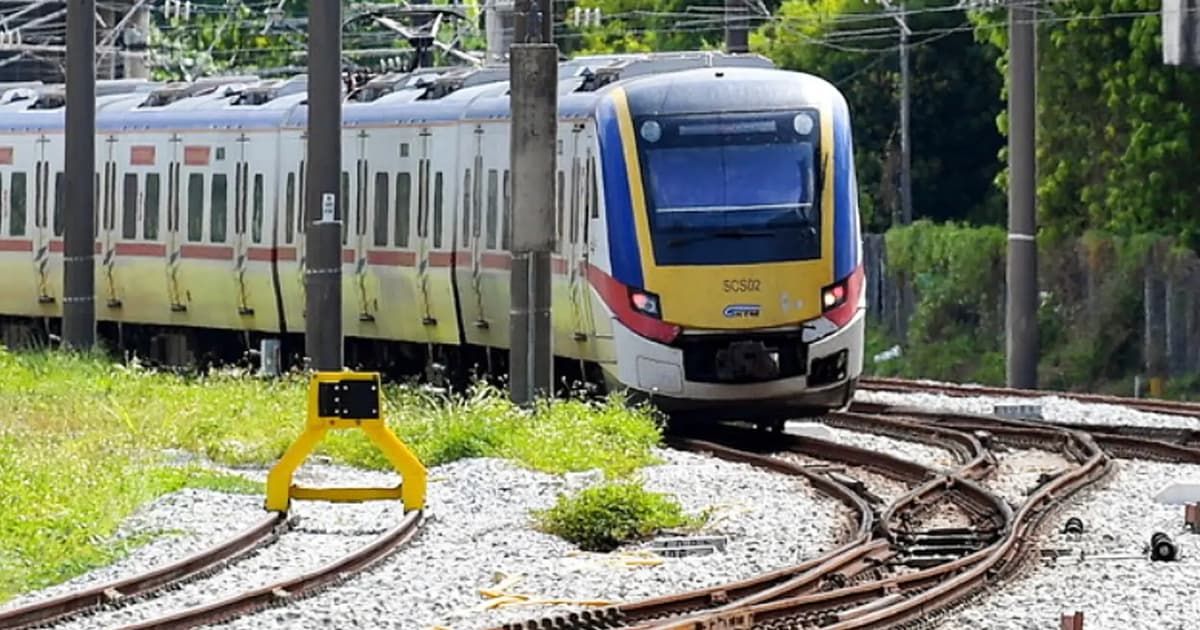
From Wan Agyl Wan Hassan
Malaysians don’t expect perfection from government infrastructure projects. We understand delays happen. What we don’t expect and should never accept is silence.
Today, two of Malaysia’s most critical rail projects – the Gemas-Johor Bahru Electrified Double Track Project (EDTP) and the LRT3 Shah Alam Line – are behind schedule. Both were launched with national fanfare. Both were revised multiple times. And now, both have missed their most recent publicly declared deadlines.
Yet the public has received no comprehensive explanation, no transparent timeline revisions, and no visibility into cost implications or contractor accountability.
Let’s start in the south. The EDTP, first slated for completion in 2021, was revised to April 2025. But as of August, the ETS service still only reaches Segamat. The final stretch into Johor Bahru remains offline due to unfinished overhead line electrification, unresolved safety approvals, and pending regulatory checks.
Newly acquired trains are still undergoing fault-free tests, and the ticketing system reflects no access beyond Segamat for the remainder of the year. No official statement has acknowledged this latest slippage, and KTMB’s Aug 3 media note, while reaffirming commitment, gave no revised target date.
Up north and west, the LRT3 project tells a similar story. Launched in 2015 with an expected opening in 2020, it has been through scope reductions, reinstatements, cost revisions, and multiple reschedules. Most recently, its March 2025 opening was pushed to Sept 30, despite being declared “99% complete.”
Cost-wise, the LRT3 has ballooned from an original RM9 billion to RM10 billion estimate to RM21.93 billion after reinstating previously axed stations. This isn’t just a budget story; it’s a governance one. The public has no access to updated delivery dashboards or financial breakdowns. Critical questions around payment delays, contractor disputes, and scope creep remain unanswered.
Taken together, these two projects illustrate a wider institutional problem: Malaysia’s rail megaprojects are off track and it is not just physically, but in terms of how they’re managed, communicated, and held accountable.
In November 2024, I shared a public commentary urging authorities to adopt a milestone-based disclosure system, enforce contractor penalties, and engage technical experts more transparently. That call was not isolated. Many civil society actors, engineers, and public transport advocates have echoed the same concerns. But months later, we are still without a formal response from the transport ministry or project owners on either project.
It is deeply worrying that in both the EDTP and LRT3 cases, public agencies appear to be deferring to optimistic projections and internal PR management rather than providing direct, facts-based communication. No updated white paper. No parliamentary briefing. No centralised public portal outlining risks, revised costs, or compliance status. The information Malaysians rely on comes not from institutional channels, but from leaks, media investigations, or vague corporate statements.
Perhaps most regrettable is how this delay also reflects a deeper issue in Malaysia’s infrastructure delivery culture – the marginalisation of technical voices. Over the past year, we’ve seen instances where politicians or administrative leaders dictate schedules or declare launch dates that I was told by the engineers and systems specialists themselves are unrealistic.
This inversion, where technical teams must conform to political deadlines instead of setting timelines based on technical readiness, ultimately undermines safety, delivery credibility, and institutional professionalism. It is not only unproductive, it is unfair to the very people tasked with ensuring the system works as promised.
Globally, this is not how modern rail nations operate. Countries like Japan, the UK, and even Indonesia have public-facing dashboards for megaproject delivery. Their agencies issue delay notices, audit reviews, and revised cost-benefit projections. Public trust is preserved not through perfection but through disclosure. Malaysia has the talent and tools to do the same, but we lack a system that mandates it.
That’s why I am renewing my call today, – not as a critic, but as someone who has worked inside the regulatory system and alongside policymakers. It is time to reset how we manage public rail investments. Let us use these delays not as political liabilities to hide, but as opportunities for long-overdue reform.
The transport ministry, Prasarana, and KTMB must:
1. Formally acknowledge missed deadlines and issue revised, realistic milestone timelines for both EDTP and LRT3.
2. Publish public-facing progress dashboards with updated technical status, safety audit summaries, and contractor compliance data.
3. Disclose cost implications transparently, including whether penalties or cost-recovery mechanisms were applied for non-performance.
4. Establish a dedicated rail project oversight unit, independent of political cycles and tasked with public engagement, technical milestone verification, and performance reporting.
We are at a crossroads. The financial cost of delay is significant. But the greater cost is institutional; when public projects drift into silence, accountability erodes, and public confidence with it.
A delayed rail line can still be completed. But a system that refuses to explain itself, that disregards public intelligence and technical voices will struggle to move forward at all.
Let’s get Malaysia back on track, not just with trains, but with truth.
Wan Agyl Wan Hassan is the founder and CEO of MY Mobility Vision, a transport think tank.
The views expressed are those of the writer and do not necessarily reflect those of FMT.






